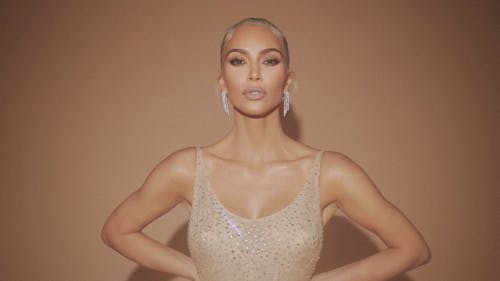KONDA: Social media's perpetuation of beauty standards can damage mental health
Column: Pitch in

At a time when the latest trends are at our fingertips, it is easy to get caught up in the ideals of a perfect appearance. With makeup techniques, dieting methods and exercise tutorials, it seems like the world, at least online, is constantly focused on how you look.
The convenience of knowing your apparent flaws can be detrimental. While society has been raising awareness for those struggling with their mental health, it is essential to consider the effects of beauty standards on the mind.
Our health is precious to us, undeniably more than our appearances should be, yet approximately 35 percent of adults feel depressed due to their body image. A negative body image can also trigger anxiety and eating or mood disorders.
Toxic beauty standards damage the U.S. economy, costing approximately $806 billion due to body dissatisfaction and appearance-based discrimination, according to a study by Dove. While something as superficial-sounding as beauty standards may seem insignificant, their impact is undeniable.
But why are we not doing anything about those billions of dollars spent on rehabilitation? Why is society unwilling to relinquish standards based on colorism, racism and classism?
Because we continue to see it every day in the age of social media and cutting-edge technology, the media consistently influences our daily decisions. Seeing celebrities that fit and reinforce unrealistic expectations takes a significant toll on the average person.
We do not want to see the image of what we should look like.
A simple yet prominent example is the lack of inclusivity of skin tones in basic makeup products. Beauty standards have catered toward lighter tones and white features for hundreds of years, but why are we still unable to see all beauty brands marketing products for all skin tones?
Fenty Beauty, Rihanna's makeup line, has especially stood out with its inclusivity in makeup. Not only does it offer a wide shade range but it also takes undertones into account, dramatically changing the products' usability.
It is essential to note, though, that this change in skin tone ranges happened after years of color-based discrimination. Makeup is considered an enhancer of beauty, but products sold with discriminatory values only contribute to these unrealistic standards.
Young girls and women see fashion models that exhibit features that are praised by the media and realize their incapability to live up to those standards. They begin to have negative views of their bodies and faces.
Recently, corporations have been jumping on the bandwagon about embracing who you are by launching campaigns related to body image, self-confidence and mental health.
While companies use these methods as marketing tactics to boost their credibility, specific reports recognize the existence of toxic beauty standards.
For example, the #DetoxYourFeed campaign by Dove encourages consumers to inspire young individuals to steer clear of negative opinions about themselves. A step-by-step guide on detoxification mentions that "comparing yourself to people online can be problematic as many posts can be digitally distorted, professionally produced and far from real life."
Similarly, the rise of social media in recent years has given people false perceptions of reality regarding body image and overall appearance. You are probably familiar with celebrities being scrutinized for editing Instagram photos in particular ways to exemplify beauty standards.
Celebrities are hailed as the perfect representation of current ideals, such as Kim Kardashian, who was criticized for glorifying extreme weight loss by wearing Marilyn Monroe's dress at the 2022 Met Gala.
People realized the extent to which celebrities will go to fit into a dress or, more importantly, to reinforce the idea of achieving a flawless appearance.
Celebrities that endorse particular diets that easily change the appearance of someone's body end up influencing people toward something that could possibly harm them in the long run.
In a 2017 study conducted on anorexia, researchers found that dieting becomes uncontrollable and repetitive, leading to less than 50 percent of individuals making a full recovery.
In reality, people suffer from mental health conditions due to societal standards, whether they seem superficial or not.
Beauty is pursued at a cost, often in an attempt to fit harmful stereotypes.
We have moved toward accepting and understanding that people differ in appearance. Let us continue to embrace diversity. There is so much more to us than how we look.
Vaishnavi Konda is a first-year at Rutgers Business School majoring in business analytics and information technology and minoring in linguistics. Her column, "Pitch In," runs on alternate Fridays.
*Columns, cartoons and letters do not necessarily reflect the views of the Targum Publishing Company or its staff.
YOUR VOICE | The Daily Targum welcomes submissions from all readers. Due to space limitations in our print newspaper, letters to the editor must not exceed 900 words. Guest columns and commentaries must be between 700 and 900 words. All authors must include their name, phone number, class year and college affiliation or department to be considered for publication. Please submit via email to oped@dailytargum.com by 4 p.m. to be considered for the following day's publication. Columns, cartoons and letters do not necessarily reflect the views of the Targum Publishing Company or its staff.



